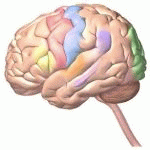Neurology
|
24 april 2012 17:52:07 |
| Etiology of autistic features: the persisting neurotoxic effects of propionic acid (Journal of Neuroinflammation) |
|
Tweet Background:
Recent clinical observations suggest that certain gut and dietary factors may transiently worsen symptoms in autism. Propionic acid (PA) is a short chain fatty acid and an important intermediate of cellular metabolism. Although PA has several beneficial biological effects, its accumulation is neurotoxic.
Methods:
Two groups of young Western albino male rats weighing about 45 to 60 grams (approximately 21 days old) were used in the present study. The first group consisted of oral buffered PA-treated rats that were given a neurotoxic dose of 250 mg/kg body weight/day for three days, n = eight; the second group of rats were given only phosphate buffered saline and used as a control. Biochemical parameters representing oxidative stress, energy metabolism, neuroinflammation, neurotransmission, and apoptosis were investigated in brain homogenates of both groups.
Results:
Biochemical analyses of brain homogenates from PA-treated rats showed an increase in oxidative stress markers (for example, lipid peroxidation), coupled with a decrease in glutathione (GSH) and glutathione peroxidase (GPX) and catalase activities. Impaired energy metabolism was ascertained through the decrease of lactate dehydrogenase and activation of creatine kinase (CK). Elevated IL-6, TNFalpha, IFNgamma and heat shock protein 70 (HSP70) confirmed the neuroinflammatory effect of PA. Moreover, elevation of caspase3 and DNA fragmentation proved the pro-apoptotic and neurotoxic effect of PA to rat pups
Conclusion:
By comparing the results obtained with those from animal models of autism or with clinical data on the biochemical profile of autistic patients, this study showed that the neurotoxicity of PA as an environmental factor could play a central role in the etiology of autistic biochemical features. |
| 354 viewsCategory: Neurology |
 A possible role for inflammation in mediating apoptosis of oligodendrocytes as induced by the Lyme disease spirochete Borrelia burgdorferi (Journal of Neuroinflammation) A possible role for inflammation in mediating apoptosis of oligodendrocytes as induced by the Lyme disease spirochete Borrelia burgdorferi (Journal of Neuroinflammation)Inducible nitric oxide synthase is involved in the modulation of depressive behaviors induced by unpredictable chronic mild stress (Journal of Neuroinflammation) 
|
| blog comments powered by Disqus |
MyJournals.org
The latest issues of all your favorite science journals on one page
The latest issues of all your favorite science journals on one page



